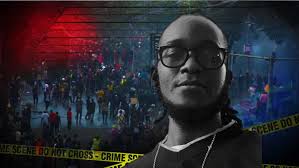A Nairobi court has ruled that Arms Movement Registers must be produced as evidence in the inquest into the death of Rex Masai, dismissing objections raised by the officer in charge of the Central Police Station armoury.
In a ruling delivered on Thursday afternoon, the court rejected the position taken by armoury officer Fredrick Okapesi, who had declined to surrender the registers unless he was first allowed to review them to confirm that the Independent Policing Oversight Authority (IPOA) had not altered the records. His stance was supported by National Police Service Commission (NPSC) lawyer Elias Ouma.
The Director of Public Prosecutions, through prosecutor Jalson Makori, urged the court to compel the production of the registers, arguing that they were central to establishing the circumstances surrounding Masai’s death.
In allowing the request, the court emphasised that inquests are inquisitorial proceedings whose primary purpose is to ascertain the truth rather than determine criminal liability. It relied on Sections 385 to 387 of the Criminal Procedure Code, particularly Section 386(1), which empowers the court to summon witnesses and receive any evidence it considers necessary to uncover the truth in cases of reportable deaths.
The court further held that its authority to admit the registers was reinforced by Section 173 of the Evidence Act, which allows the court to summon and receive any document required for the just determination of a matter, notwithstanding objections.
While Sections 79 to 82 of the Evidence Act govern the proof of public documents, the court clarified that these provisions regulate evidentiary convenience and do not limit judicial discretion in inquests. Certification under Sections 80 to 82, the court noted, is permissive rather than mandatory.
The court found that the Arms Movement Registers constituted primary and material evidence, as they detail the issuance, movement, and accountability of firearms relevant to the death under inquiry. It also noted that the registers were lawfully in IPOA’s custody pursuant to a prior court order, a fact that was not contested.
Accordingly, the court ruled that the registers be produced as exhibits, underscoring that public interest, transparency, and the duty to establish the truth outweighed the procedural objections raised by the armoury officer. By Dzuya Walter, Citizen Digital






